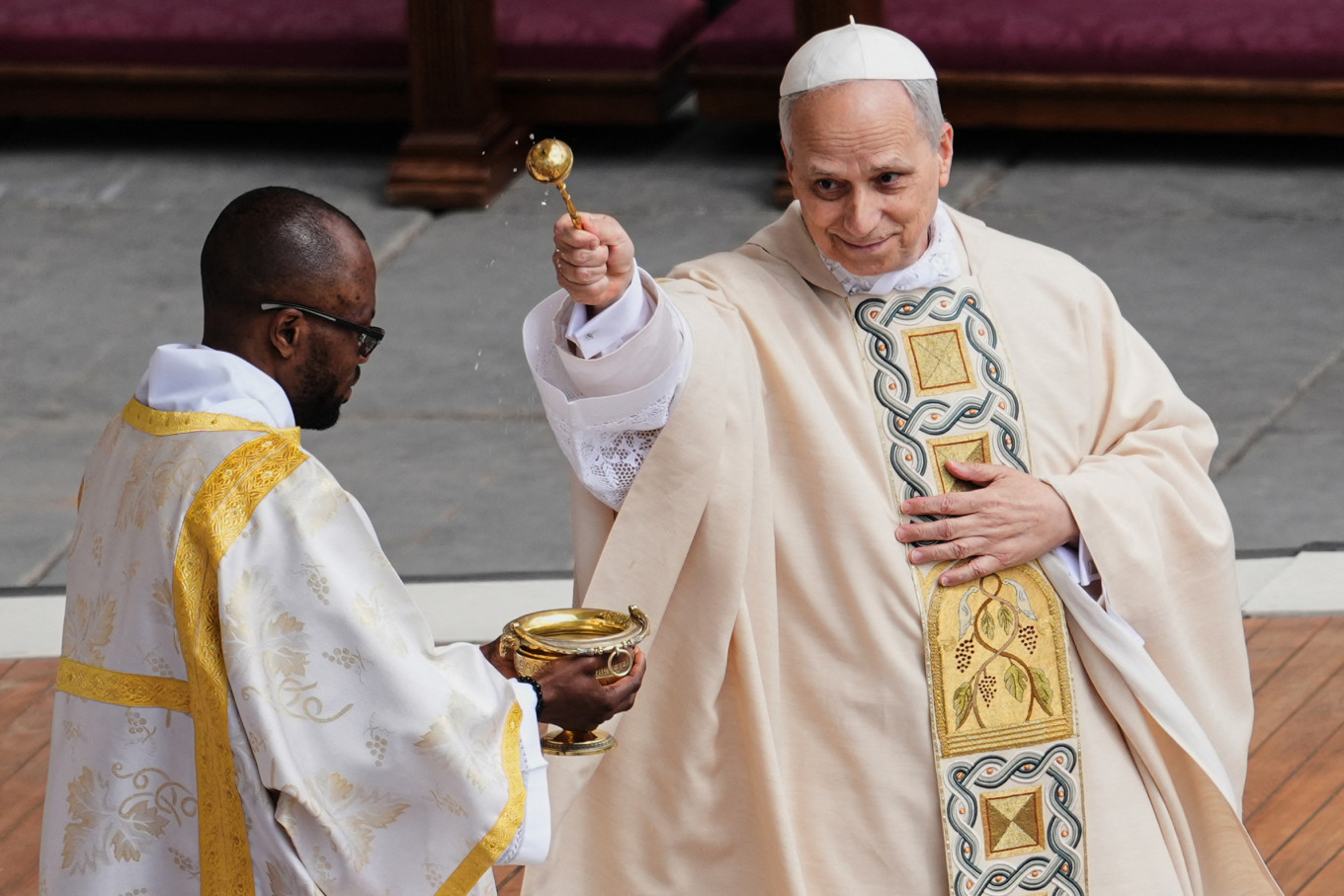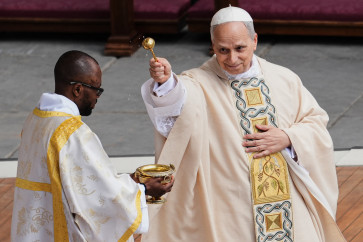Popular Reads
Top Results
Can't find what you're looking for?
View all search resultsPopular Reads
Top Results
Can't find what you're looking for?
View all search resultsLeo XIV: A listening papacy in a world of noise
By listening rather than making statements, Pope Leo is not inactive. Instead, he has shown a different form of leadership.
Change text size
Gift Premium Articles
to Anyone
“Peace be with you all.” Pope Leo XIV began his pontificate on May 8 with a brief but meaningful and purposeful greeting. This salutation has more than just ceremonial meaning when spoken softly but firmly from the balcony of St. Peter's Basilica.
This remark came at a time when the world is filled with noise due to polarized narratives, wars and conflicts between nations, populist politics and the negative impact of constant digital technology use on mental health.
Leo XIV officially started his papacy on May 18, with an inaugural mass in St. Peter's Square attended by more than 200,000 faithful and leaders from many countries. The pope encouraged the Church to be a "leaven of unity" in the midst of a divided and politicized society, emphasizing world unity and peace in his sermon. He made a clear call to break the cycle of violence and war, encouraging Christians and all those who have good intentions to act as agents of reconciliation.
In his papal motto, "In Illo Uno Unum" (In one Christ, we are one), he described peace as both a geopolitical goal and a spiritual obligation. This affirmation provides clear direction for his leadership, which is determined not only by ideology or church reform but also by a deep commitment to compassion, solidarity and promoting human dignity.
He refrained from making grandiose visionary statements or detailing church reforms. Instead, he is present and attentive.
Formerly known as Cardinal Robert Prevost of the Order of Saint Augustine, he was formed not by the Roman bureaucracy but by a life rooted in community and missionary work. Before taking on the leadership role at the Vatican, he spent more than two decades in Peru, living among the poor as a priest and mentor. His Augustinian background has shaped a leadership style that values friendship over control and listening rather than rule, a leadership style rarely found in today's religious or political spheres.
In a society where power is often equated with visibility and volume, Pope Leo's calm demeanor offers an unusual alternative. His approach embodies what the scholar Otto Scharmer describes as “presencing”, a leadership skill that involves really listening to connect with the possibilities of the future. This is also in line with Hannah Arendt's observation that “thoughtlessness”, the unwillingness to reflect, is a core enabler of injustice.



















